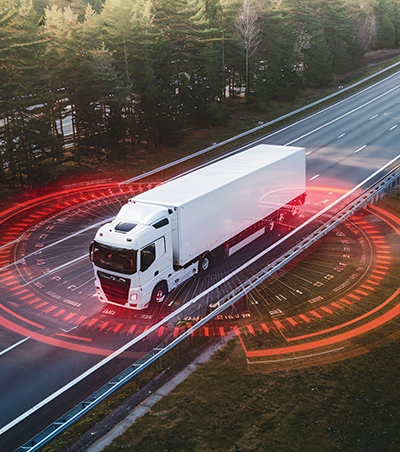
Tired of sky-high premiums and endless forms? Whether you’re an owner-operator or running a HGV fleet, finding the right HGV insurance shouldn’t feel like a full-time job!
Our quick and easy comparison service helps lorry drivers like you save time and money by putting the best lorry insurance deals in one place. No hassle, no hidden costs, just straight-talking cover at prices that won’t make your wallet wince. Compare now and drive with confidence!
What is HGV Insurance?
HGV (heavy goods vehicle) insurance, also known as haulage or lorry insurance, is designed for commercial use vehicles over 7.5 tonnes.
An insurance policy for this type of vehicle will usually cover the cab and driver, carried goods, and the trailer itself. These insurance covers can include commercial motor insurance and goods-in-transit insurance, tailored to specific needs. There are other features that can also be added to these policies as further protections for the driver or business.
Drivers covering the UK won’t always need international insurance, so HGV insurance has some flexibility in its coverage. Insurance cover can be UK only, UK and Europe or International for long-distance haulage.
What Can HGV Insurance Cover?
It's fairly likely that your HGV is being used for business purposes or the transport of goods, but the specifics of this can impact the insurance available to you.
What Are The Requirements Of Your HGV Insurance Quote?
Before applying for lorry insurance, there are a few details that you’re going to need to make sure you’re fully covered and that your policy details are accurate.
What is the value of your Truck?
As with any type of insurance policy, you will need to know the value of the thing that you’re insuring. For HGVs, this essentially means ‘how much would my HGV be worth if I sold it?’ This helps to put a value on it in the case of an accident or in the instance that the vehicle is written off.
It’s really important that you don’t undervalue your vehicle as you may lose out on a pay-out reflecting its true value should an accident occur. Reducing an estimate by two or three thousand to reduce a quote isn’t worth the thousands you could lose out on should an accident actually happen.
What is the age of your vehicle?
The age of your vehicle will contribute to the final cost of your insurance, with newer models typically being less expensive than older HGVs. Newer models are less likely to break down and repair and vehicle retrieval can be considerably less. This might not be the case if your insurance policy is international though – long-distance retrievals can be very expensive.
What will you carry using your HGV?
This again goes back to the types of goods you will be transporting and where insurance priorities lie with cargo and goods on board. Lower-value goods will, of course, be cheaper to insure in most cases. A single HGV full of gravel, for example, will be cheaper to insure than one full of oil.
For some drivers, the type of goods carried can change regularly but it’s important to be covered for those higher amounts and it’s well worth altering a policy rather than losing out should something go wrong.
Where will you be transporting goods to and from?
Spend some time considering your possible delivery destinations. For some industries, most travel will be done within the UK, whilst others may lead the driver further afield. Food delivery, for example, will likely lead to driving within Europe.
Risks involved in these locations can mean that adding European insurance to a UK-only policy can impact the price. Even with the added premium, it’s essential that this policy information is accurate or you risk not being covered.
HGV Insurance For New Drivers
New HGV drivers may be limited in the policies that they can choose and may see some premiums rise with fewer years behind the wheel. Adding a new driver to a fleet policy rather than an individual policy may be one option, but it’s a good idea to compare HGV insurance options and see which are most suitable (and most reasonably priced) for you.



